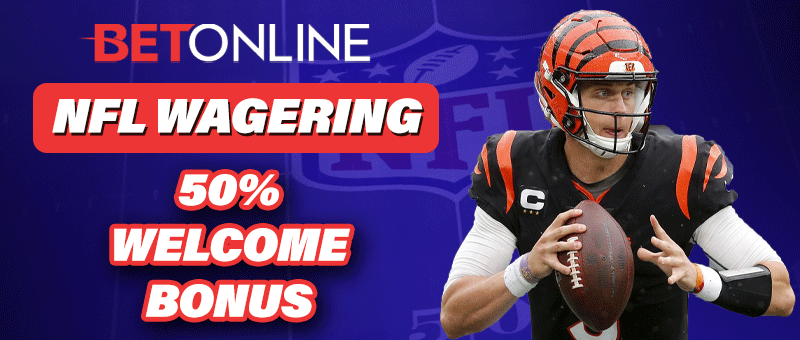Last updated on: September 11th, 2024
Economic Impact of Legalized Sports Betting in the US
The legalization of sports betting in the US has transformed the economic landscape, offering significant monetary benefits and influencing various sectors. This article explores the multifaceted economic effect of sports betting, from job creation and technological advancements to sports betting partnerships, real estate benefits and more.
Trusted Betting Sites
| Rank | Sportsbook | Bonus Offer | Play Now |
|---|---|---|---|
| 1 |  |
Exclusive 50% Bonus Code up to $1000!Read Review | BVD1000 in Cashier |
| 2 |  |
50% Up To $1,000Read Review | Visit BetOnline! |
| 3 |  |
50% Up To $1,000 Read Review | Visit MyBookie! |
| 4 |  |
100% Up To $300Read Review | Visit Xbet! |
| 5 |  |
50% Up To $1,000 Read Review | Visit SportsBetting! |
Job Creation
The sports betting industry supports a significant number of jobs. As of the latest reports, legal sports betting in the US employs over 200,000 people. This figure includes direct jobs within sportsbooks as well as indirect jobs created through ancillary services and support roles. These jobs span various levels, from entry-level positions to highly specialized roles in data analysis and IT.
Positions Available at Legal US Sportsbooks
Sports betting locations offer a variety of positions that cater to different skill sets and expertise levels. Aside from indirect jobs such as construction workers building new sportsbook facilities, vendors supplying goods and services to sportsbooks, and additional roles in the hospitality sector, like hotel and restaurant staff in areas with thriving sports betting markets, there are also other jobs available to work at a sportsbook.
- Sportsbook Ticket Writer: Handles bets placed by customers, provides customer service, and processes payouts.
- Odds Compiler: Analyzes sports data to set betting odds for different events.
- Risk Manager: Monitors and manages the financial risk associated with the bets taken.
- Customer Service Representative: Assists customers with account issues, betting queries, and other service-related tasks.
- Marketing Specialist: Develops and implements marketing strategies to attract and retain customers.
- IT Support Technician: Ensures that the betting platforms and systems run smoothly without technical glitches.
- Data Analyst: Analyzes betting trends and customer data to improve business operations and decision-making.
- Compliance Officer: Ensures that the sportsbook operates within the legal and regulatory frameworks set by the state and federal authorities.
- Finance and Accounting Staff: Manages financial transactions, reporting, and auditing functions.
- Security Personnel: Ensures the safety and security of the premises and patrons.
Note: Sportsbook ticket writers are typically the most common entry-level position with writers earning between $12 to $15 per hour. This can translate to an annual salary ranging from approximately $25,000 to $31,000, considering full-time employment. In major markets like Las Vegas, the pay can be slightly higher due to the high volume of betting activity, tips from winning and famous sports bettors, and the need for experienced staff.
Market Size and Revenue
The US sports betting market has seen exponential growth since the Supreme Court’s 2018 decision to allow states to legalize sports betting. As of now, the market size is estimated to be around $85 billion, with substantial contributions from both brick and mortar sportsbooks as well as online betting platforms. Even further, the amount of money bet on sports in the US is projected to reach $167.66 billion by 2029, with a compound annual growth rate (CAGR) of 10.26%.
State-by-State
Different states have reported impressive figures since legalizing sports betting. For example, New Jersey sportsbooks in 2022 reported a total sports betting handle (the total amount wagered) of over $10 billion. This generated significant tax revenue for the state’s economy. Likewise, Nevada sportsbooks continue to see strong performance with annual handles exceeding $5 billion. As for other major states like Pennsylvania and NY, the legalization of sports betting has contributed millions in tax revenue annually.
Tax Revenue and State Benefits
Legalized sports betting has become a substantial source of tax revenue for states. States with legal sports betting frameworks have implemented various tax rates on the revenue generated by sportsbooks. These tax rates range greatly (from 6.75% in Nevada to 51% in New York). The revenue collected is used to support various public services and state initiatives. While these are commonly allotted in the state’s general fund, other states put a stronger focus on specific programs or budgets.
- Education: Several states, such as Colorado and Illinois, direct a portion of their sports betting tax revenue to fund public education. In Illinois, a portion of the sports betting revenue goes to the Common School Fund, which supports public schools across the state.
- Infrastructure: Infrastructure development is another common allocation for sports betting tax revenue. States like New York and Rhode Island have utilized these funds for public infrastructure projects, enhancing transportation networks and public facilities.
- Healthcare: Some states allocate a part of the revenue to healthcare programs. For example, Michigan directs a portion of its sports betting revenue to the First Responder Presumed Coverage Fund, which supports healthcare services for first responders.
- Problem Gambling: While a growing concern due to sportsbook availability, most states are allocating a small percentage of revenue to help gamblers who lose control.
Economic Impact on States
New Jersey, one of the leading states with sports betting, collected over $100 million in tax revenue in 2022 alone. Similarly, Pennsylvania reported collecting $122.5 million in sports betting taxes in 2022, demonstrating the significant financial contribution of the industry to state budgets. But the economic impact of sports betting extends beyond direct tax revenue.
The introduction of legal US sportsbooks has led to increased economic activity in states, creating a ripple effect that benefits various sectors. Tourism is maybe the most popular with sports enthusiasts traveling to these, staying in local hotels, dining in restaurants, and engaging in other tourism-related activities. Local small businesses receive a positive impact too. Whether a bar, retail store or other business near a sportsbook, these venues often experience increased patronage.
- According to a study by the American Gaming Association, legal sports betting could generate up to $8 billion in local taxes annually across the US.
- A report by Oxford Economics found that the total economic output of legalized sports betting could reach $41.2 billion, with $22.4 billion contributing to the US GDP.
Impact on Real Estate
The legalization of sports betting has led to significant development in the real estate sector, particularly in areas surrounding new or expanded casinos and sportsbooks. These developments often lead to increased property values and economic revitalization of urban areas.
- A study by the National Association of Realtors showed that areas within a five-mile radius of a casino or sportsbook experienced higher rates of property value appreciation compared to regions without these establishments. This increase is attributed to the influx of visitors, improved infrastructure, and the creation of new business opportunities.
- Another finding by the National Association of Realtors explained how property values in areas near new casinos and sportsbooks have increased by an average of 10-15% over five years002E
Investment Opportunities
Aside from the general economic impact from sports betting, the industry has also grown a series of investors. Now, gamblers or non-gamblers can capitalize on the growing market by investing in stocks of sports betting companies.
| Stock | Notes |
|---|---|
| DraftKings (DKNG) | One of the leading names in the sports betting industry, DraftKings has seen substantial growth since going public. The company reported a revenue increase of 45% year-over-year in 2023. |
| Flutter Entertainment (PDYPY) | The parent company of FanDuel, Flutter Entertainment is a major player in the global sports betting market. The company’s stock has performed well due to its dominant position in the US and international markets. |
| MGM Resorts International (MGM) | MGM has a strong presence in both the traditional casino market and online sports betting through its BetMGM platform. The company has seen significant growth in its digital betting operations. |
| Caesars Entertainment (CZR) | With its extensive network of casinos and the Caesars Sportsbook app, Caesars Entertainment is a key player in the sports betting industry. The company continues to expand across the United States. |
For investors seeking diversified exposure to the sports betting industry, exchange-traded funds (ETFs) focused on gaming and betting are an attractive option too.
- Roundhill Sports Betting & iGaming ETF (BETZ): This ETF provides exposure to companies involved in sports betting and online gaming, offering a diversified investment option in the growing market.
- VanEck Vectors Gaming ETF (BJK): While not exclusively focused on sports betting, this ETF includes companies involved in casinos and gaming, providing broader exposure to the gaming industry.
Final Thoughts On The Sports Betting Economic Effect
The acceptance of sports betting in the US has come full circle, with sports organizations also having an impact on the sportsbooks. Partnerships between the two often include various elements such as branding rights, advertising, and promotion of sports betting platforms within the teams’ home stadium. It’s worth noting that partnerships can evolve over time as new agreements are made and existing contracts expire or change. With that, this list of professional sports teams and their partnerships with sportsbook operators is incomplete but shows a few of the partnerships.
NFL (National Football League)
- Philadelphia Eagles: DraftKings
- Las Vegas Raiders: BetMGM
- Denver Broncos: BetMGM
- Chicago Bears: PointsBet
- Indianapolis Colts: Caesars Entertainment
- Tennessee Titans: BetMGM
- Washington Commanders: FanDuel
NBA (National Basketball Association)
- Philadelphia 76ers: Caesars Entertainment
- Indiana Pacers: Caesars Entertainment
- Detroit Pistons: FanDuel
- Denver Nuggets: PointsBet
- Chicago Bulls: PointsBet
MLB (Major League Baseball)
- Detroit Tigers: PointsBet
- Colorado Rockies: DraftKings
- Chicago Cubs: DraftKings
- Philadelphia Phillies: BetMGM
- Arizona Diamondbacks: Caesars Entertainment
NHL (National Hockey League)
- Colorado Avalanche: BetMGM
- New Jersey Devils: Caesars Entertainment
- Vegas Golden Knights: William Hill
- Washington Capitals: BetMGM
- Philadelphia Flyers: FanDuel
MLS (Major League Soccer)
- Philadelphia Union: Bally’s Corporation
- D.C. United: Caesars Entertainment
- Chicago Fire: PointsBet





